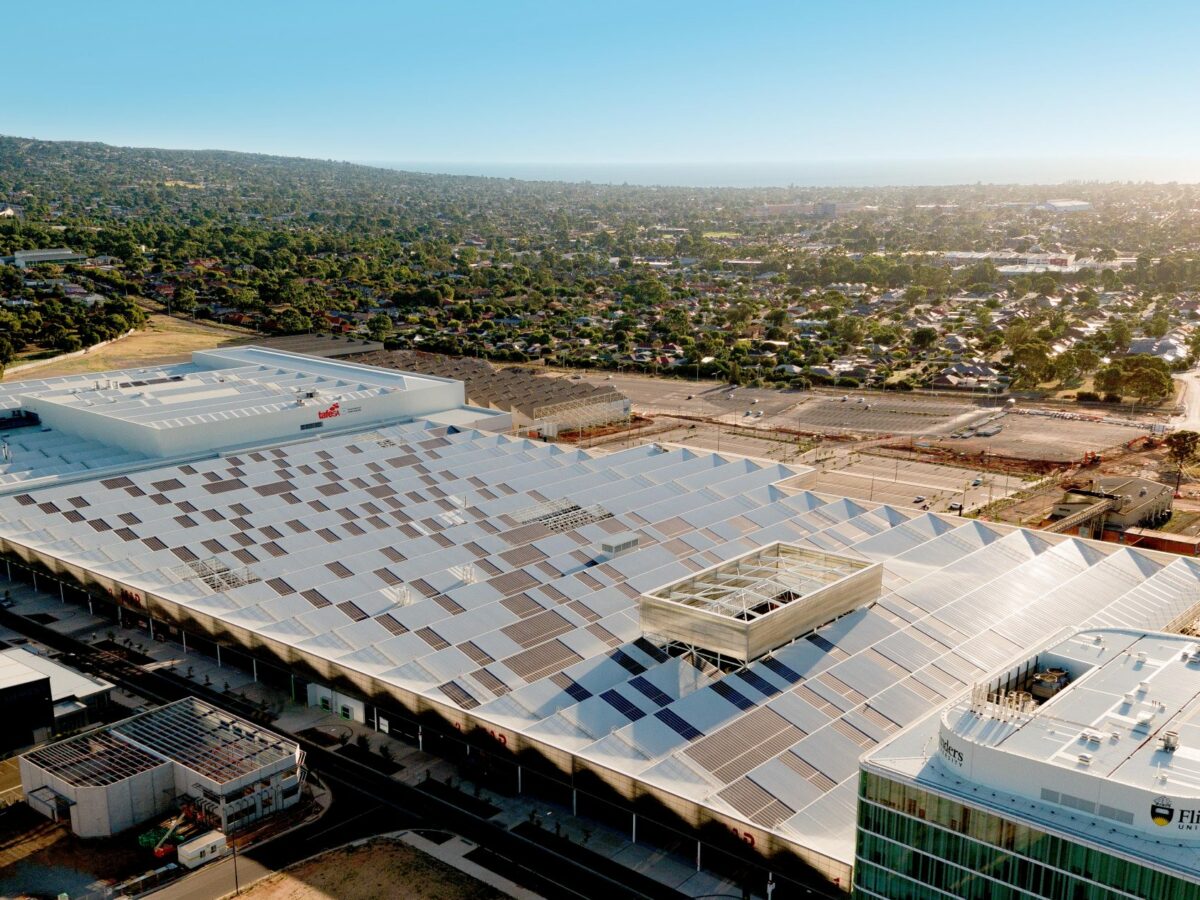Frigate project sparks $10 million manufacturing accelerator plan

The construction of Hunter class frigates in Adelaide in a new all-digital shipyard has sparked the creation of a first-of-its-kind advanced manufacturing accelerator located at the Tonsley Innovation District.
Tonsley, already a thriving advanced education and industrial zone, will host the development of the Line Zero – Factory of the Future, a collaboration between the state government and Flinders University.
The 2020 State Budget this week allocated $5 million which will support a $5 million co-investment by Flinders at Tonsley, which housed in the formed Mitsubishi vehicle assembly plant (pictured).
At Tonsley, founding partners Flinders University and ASC Shipbuilding, a subsidiary of BAE Systems Australia, will partner with a range of companies to test advanced manufacturing technologies for potential deployment in support of the Hunter build.
The Line Zero initiative represents a significant step forward for the Hunter supply chain to demonstrate and test – in a controlled environment – the technological value and progress that can be made over the life of the programme.
Flinders Pro-Vice Chancellor Professor John Spoehr, the Director of the university’s Australian Industrial Transformation Institute, said the funding announcement will enable technologies and processes tested by Flinders and ASC shipbuilding to be honed and refined in a real-world manufacturing site – the former Mitsubishi panel stamping plant.
Spoehr said: “It also affords an opportunity for supply chain companies to work with Flinders and ASC Shipbuilding to harness the benefits of advanced manufacturing, enabling improved performance and growing their contribution to the sector and to the state and national economy.”
ASC Shipbuilding has moved to the prototyping stage of the Hunter project, with Adelaide’s MG Engineering contracted to build four “mini blocks” to be used to test leading edge manufacturing techniques.
The six metre block modules, which will mirror ship blocks to be used in final construction of the frigates, will be installed at Tonsley before the end of the year.
ASC Shipbuilding Managing Director Craig Lockhart said the new Osborne naval shipyard will be one of the most modern, digitally advanced shipyards in the world – linking the digital engineering design with automated technologies and digitised work packs for shipbuilders on the ground.
Lockhart said: “For workers and the supply chain this means they can use a range of digital technologies to do their job right, the first time – leading to productivity, safety and quality outcomes.
“Line Zero provides us with the exceptional opportunity to work with Flinders University researchers and academics as well as industry partners, to test and trial advanced manufacturing technologies and techniques in a factory environment, before adapting them to the shipyard.”
Flinders University Vice-Chancellor Professor Colin Stirling said today: “A crucial element in research that makes an impact is taking research out of the lab and applying it in the real world and this facility will do exactly that.
Picture: tonsley.com.au
Subscribe to our free @AuManufacturing newsletter here.
Topics Manufacturing News
@aumanufacturing Sections
Analysis and Commentary Awards Defence Manufacturing News Podcast Technology Videos






